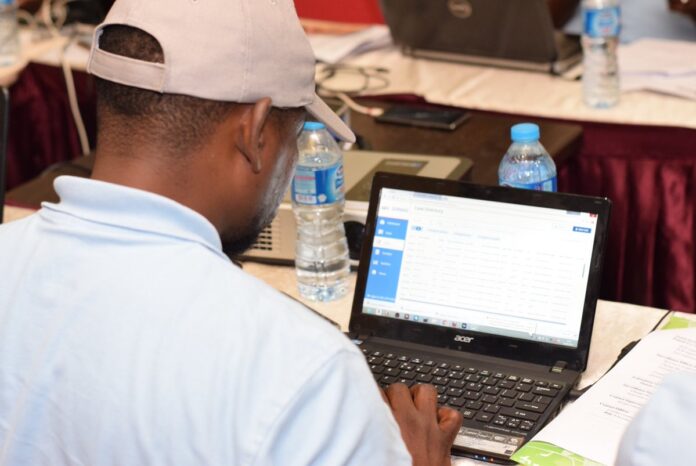By Ishaya Ibrahim, News Editor
Many Nigerians go about their activities on social media without realizing that the big brother, that is the Nigerian state, is watching them with tech surveillance equipment.
A coalition of civil society organisations, Action Group on Free Civic Space (AGFCS), has detailed some measures used by the government to monitor them on social media without them knowing.
Tech surveillance is carried out by state and federal agencies not only to address Nigeria’s security concerns, according to the report but to suppress dissent and opposition voices.
Related
Buhari wants phone IMEI this July. For safety or for surveillance?
Nigeria spies on citizens with Israeli tech
Nigerians may only know of the State Security Service (SSS), the National Intelligence Agency, the Defence Intelligence Agency (DIA) and the Office of the National Security Adviser as the agencies of government spying on them with tech surveillance equipment. But the net is wider than that, according to a report presented by Spaces for Change executive director, Victoria Ibezim-Ohaeri.
The Nigeria Communication Commission (NCC), National Information Technology Development Agency (NITDA), National Broadcasting Commission (NBC) among other agencies of the Nigerian government also monitor citizens’ everyday lives on the internet.
The Nigerian government also collect citizens’ data from telecommunication companies for the purpose of surveillance. It was also revealed that the NCC has a law backing it to intercept citizens communications and carry out lawful surveillance of their activities without needing court permission.
But at an event hosted by the Action Group on Free Civic Space to commemorate the one-year anniversary of #EndSARS, the activities of the Nigerian government using tech surveillance equipment to monitor citizens came to the fore.
Lucas Koyejo, the zonal coordinator, South West of the National Human Rights Commission (NHRC), said there is a need to draw the balance between the rights of the people for privacy in cyberspace and the duty of government to secure them.
“We know that government can go overboard to suppress people because protest starts on the cyberspace before they move to the streets, which is legal, So, it is not right for the government to deactivate you because you are protesting online,” he said.
A member of the coalition, Ngozi Nwosu-Juba, said the government’s tech surveillance programme represents a major assault against the civic space. “Some of us don’t get grants to do what we needed to do, so the internet is where we are able to get our voices heard,” she said.
Human rights activist, Achike Chude, said the nature and character of the Nigerian state, which is to suppress dissent, has not changed since independence.
He argued that a civilian leader does not equal democracy because some of the worst dictators in the history of Africa – Mobutu Sese Seko, Jean Bedel-Bokassa, were civilians who ruled with an iron fist.
He regretted that despite the #EndSARS agitation, Nigerians are back to the same problem of being subjected to police brutality and institutional injustice.
A media rights campaigner, Lanre Arogundade, explained that the use of tech surveillance equipment to monitor Nigerians is due to the insecurity of the ruling class
“They are not fulfilling their constitutional obligations. There is always a correlation between dictatorship and the inability to meet the demands of the people,” he said.
A campaigner against police brutality, Okechukwu Nwanguma, said it is ironic that the police who assist the government in suppressing Nigerians, are also victims of the ruling class. “That is the reason one of the demands of the #EndSARS movement is the improvement of police welfare,” he said.






![[UPDATED] Catholic priest arrested by police for alleged shooting, killing boy over New Year fireworks [UPDATED] Catholic priest](https://thenicheng.com/wp-content/uploads/2025/01/du-ty-324x235.png)



![[UPDATED] Catholic priest arrested by police for alleged shooting, killing boy over New Year fireworks [UPDATED] Catholic priest](https://thenicheng.com/wp-content/uploads/2025/01/du-ty-100x70.png)


